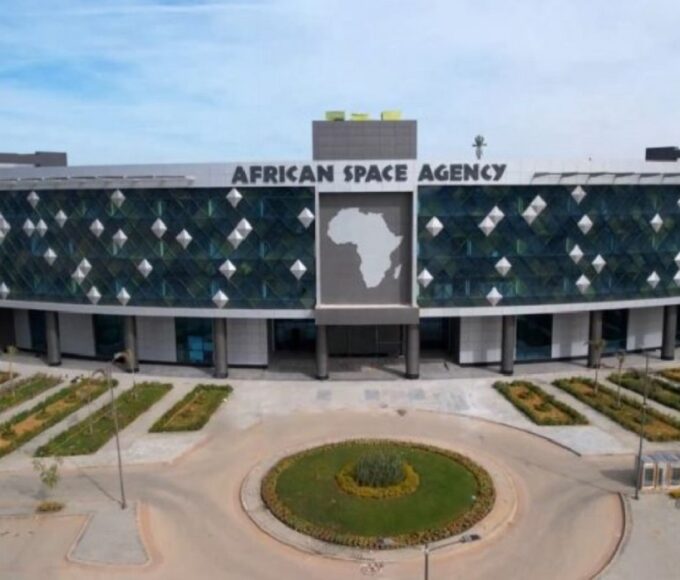DICON and Beyond: Charting Africa’s Indigenous Defence Manufacturing Journey
For decades, Africa’s military procurement strategy relied on imports—an expensive model that exposed national security to foreign bottlenecks.

For decades, Africa’s military procurement strategy relied on imports—an expensive model that exposed national security to foreign bottlenecks. Today, the tide is turning. A growing number of African nations are investing in homegrown defence manufacturing, with Nigeria’s Defence Industries Corporation of Nigeria (DICON) leading the charge.
This article examines the rise of indigenous defence manufacturing across the continent—highlighting achievements, persistent challenges, and the strategic imperative of building sovereign production lines for Africa’s armed forces.
DICON: Nigeria’s Defence Arsenal in the Making
Established in 1964, DICON is Africa’s oldest state-owned defence manufacturer. Initially created to produce small arms and ammunition for the Nigerian Army, it remained underutilised for decades. That changed in the past five years as Nigeria accelerated its domestic capability in response to:
- Persistent insurgency in the North-East
- Unpredictable international supply chains
- Rising costs of import-based military budgets
Key achievements (2020–2024):
- Production of Beryl M762 rifles, used by Nigerian Army infantry divisions
- Indigenous manufacture of mine-resistant ambush-protected (MRAP) vehicles in collaboration with Proforce Defence Ltd
- Naval collaboration with the Nigerian Navy to produce small patrol craft
- Joint venture with Turkey’s Sarsılmaz and Aselsan for arms and optics manufacturing
- Launch of DICON Ammunition Company (DAC)—with a 5-million-round annual production capacity
Indigenous Production Across Africa: A Regional Overview
Egypt and South Africa have long held continental leadership in defence manufacturing. But a second tier of aspiring producers—Nigeria, Algeria, Ethiopia, Sudan, and Ghana—has emerged.
Egypt
- Arab Organization for Industrialization (AOI) produces drones, artillery, and electronics
- Exporting small arms and APCs to Gulf and African partners
South Africa
- Denel Dynamics, Rheinmetall Denel Munition, and Paramount Group produce everything from guided weapons to light attack aircraft
- Facing fiscal pressure, but still retains global export relationships
Algeria
- Algerian Military Industry Company (AMIC) produces APCs, ammunition, and rifles under license
- Joint production agreements with China and Russia
Ethiopia
- Ethiopian Metals and Engineering Corporation (METEC) manufactures munitions, trucks, and tactical comms systems
- Limited export, mostly focused on internal demand
Strategic Motivations for Domestic Defence Industry
- Sovereignty: Owning your supply chain means greater independence from arms embargoes and foreign political leverage.
- Cost Efficiency: Indigenous production often cuts procurement costs by 30–50% in the long term.
- Job Creation: Every billion invested in local defence manufacturing can create 5,000–10,000 skilled and semi-skilled jobs.
- Innovation Ecosystem: Domestic arms production boosts innovation in metallurgy, electronics, and composite materials.
According to the Stockholm International Peace Research Institute (SIPRI), African nations spent over $23 billion on arms imports between 2018 and 2023—an unsustainable trend many governments now aim to reverse.
Barriers to Scaling
Despite the progress, African defence manufacturers face common obstacles:
- Limited R&D investment and poor linkages with universities or tech institutes
- Fragmented procurement processes with low transparency
- Lack of regional collaboration, leading to duplicated efforts
- Restricted export pathways, due to weak branding, certification gaps, and end-user scepticism
A 2023 report by the African Union’s Peace and Security Department found that less than 15% of defence spending across the continent goes to domestic producers.
Public-Private Partnerships (PPPs): A New Model Emerges
Countries like Nigeria and Kenya are increasingly adopting PPP frameworks to bridge the capability gap. For example:
- Nigeria’s DICON–Proforce–Sarsılmaz triad integrates military demand, private engineering, and foreign expertise.
- Kenya Ordnance Factories Corporation (KOFC) is expanding beyond ammunition into smart surveillance tools in partnership with local SMEs.
- Morocco’s 2024 Defence Investment Act encourages private-sector innovation and has already led to UAV co-manufacturing with Baykar (Turkey).
Continental Policy Shift: From Arms Buyers to Arms Makers
At the African Union Summit 2024, member states endorsed the “Continental Defence Industrial Development Plan (CDIDP)”—a framework that calls for:
- Establishing regional testing and certification centres
- Harmonising military procurement standards
- Creating a Continental Defence Industrial Fund (CDIF), seeded at $500 million
- Encouraging inter-state licensing agreements
Indigenous Defence Snapshot (2023–2024)
| Country | Indigenous Arms Projects | Key Focus Areas |
| Nigeria | DICON + Private Partners | Small arms, MRAPs, ammunition |
| Egypt | AOI, Arab-British Dynamics | UAVs, artillery, electronics |
| South Africa | Denel, Paramount Group | Missiles, APCs, aircraft |
| Algeria | AMIC + NORINCO (China) | APCs, rifles, optics |
| Ethiopia | METEC | Ammunition, logistics vehicles |
| Ghana | Ghana Ordnance Factory (GOF) | Light arms, training rounds |
Building Bullets and Backbone
Africa’s path to true strategic autonomy runs through its defence factories. From DICON’s rifle lines in Kaduna to Denel’s missile R&D labs in Pretoria, the continent is slowly reclaiming control of its military hardware.
But the journey must accelerate. Indigenous defence manufacturing is no longer just about pride—it’s about readiness, resilience, and self-reliance. In an era of global supply disruptions and contested alliances, Africa’s ability to arm and maintain its forces locally will define whether it wins peace, defends sovereignty, and shapes its own security destiny.
Recent Posts
Categories
- Air & Aerospace17
- Border Security15
- Civil Security6
- Civil Wars4
- Crisis5
- Cyber Security8
- Defense24
- Diplomacy19
- Entrepreneurship1
- Events5
- Global Security Watch6
- Industry8
- Land & Army9
- Leadership & Training5
- Military Aviation7
- Military History27
- Military Speeches1
- More1
- Naval & Maritime9
- Policies1
- Resources2
- Security12
- Special Forces2
- Systems And Technology9
- Tech6
- Uncategorized6
- UNSC1
- Veterans7
- Women in Defence9
Related Articles
SYSTEMS & TECHNOLOGY – THE CASE FOR SMART BORDERS IN AFRICA
On the continent of Africa, vast and varied landscape, borders often act...
ByKing Richard Igimoh, Group Editor ALODecember 11, 2025SYSTEMS & TECHNOLOGY – AFRICAN SATELLITE PROGRAMS: STRATEGIC GAME CHANGERS?
Across Africa’s 30 million square kilometers where borders stretch thin and climate...
ByKing Richard Igimoh, Group Editor ALONovember 19, 2025THE EVOLVING CYBERSECURITY FRONTIER IN AFRICA
Africa’s cybersecurity landscape is rapidly transforming as digital adoption surges across the...
ByKing Richard Igimoh, Group Editor ALOSeptember 5, 2025Counterinsurgency in the Age of Social Media: Hashtag Wars and the Battle for Minds
At 2:37 a.m. on a humid night in northern Mozambique, a short,...
ByKing Richard Igimoh, Group Editor ALOAugust 11, 2025













